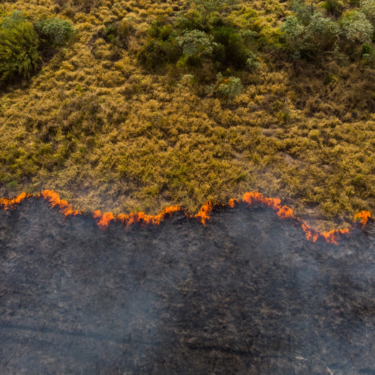Podcast | 31 Jul 2023
Greenomics – ep. 2 | To ESRS and beyond: The rise of corporate sustainability reporting

Sarah Nelson
Senior Economist, Economics & Sustainability

A climate, sustainability and economics podcast from Oxford Economics
Corporate sustainability reporting is becoming more common across the globe, driven by interest from investors and customers. The most recent developments track a shift from reporting only impacts to disclosing the risks that arise from companies’ dependence on nature and society.
The recent European Sustainability Reporting Standards are set to cover more than 50,000 companies by 2028 but are facing some hurdles.
In this episode, your host Sarah Nelson is joined by Tobias Wildner, Global Head of Sustainable Finance & Standard Setting at the Value Balancing Alliance, and by Jake Kuyer, Associate Director, Economics & Sustainability at Oxford Economics. We discuss what these standards mean for markets and whether other jurisdictions are poised to match Europe’s ambition.
Subscribe on: Spotify | Soundcloud | By Email
SARAH NELSON:
Hello and welcome to Greenomics, a podcast from Oxford Economics, where we delve into the complex relationships beTobias Wildner een climate, nature and our global economy. I’m your host, Sara Nelson, in the economics and sustainability team here at Oxford Economics. And together we’ll be navigating the changing landscape of the green transition. Each month we’ll be joined by a panel of experts to discuss one aspect of sustainability and unpack what it means for businesses in today’s economy.
In this month’s episode will be discussing the emerging sustainability reporting standards in Europe and beyond. These standards require companies to report on their risks and impacts and various aspects of sustainability, including social climate and broader nature based themes. In Europe. These efforts have centered around the European Regulation for Sustainability Reporting or ESRS. Today we’re going to discuss what the upcoming regulations are, what they mean for businesses, and how the European Commission’s most recent release has watered down some of the regulations requirements.
Joining me to unpack all this are Tobias Roden and Jake Kuyer. Tobias has worked in the field of sustainable finance and regulation for over a decade and has consulted for regulators, standard setters, corporates and NGOs across the EU. He has recently been working directly with F-Rag, the body which provides the technical advice for the ESRS. So it’s a real pleasure to have him on the show today.
Jake Kuyer leads the economic and sustainability team here at Oxford Economics and has extensive experience of applying economic analysis to the assessment of nature related risks and opportunities. Jake recently led the release of our Sustainability Management Advisory Platform or SMAP, which will help clients assess their sustainability risks and opportunities and report under requirements like the ESRS. Welcome, Tobias and Jake.
SARAH NELSON:
Tobias, I’m going to start with you. Can you please start us off by explaining what the ESRS is and where it sits and the mix of financial regulations and disclosures and the EU today?
TOBIAS WILDNER:
Sure, I’ll do my best. So just to start off the ESRS, they also said within the EU’s Green Deal, which was basically adopted in 2020 and is a set of different regulations both for the normal corporates and the financial markets and the ESRS so the European sustainability reporting standards, they define how corporates and also financial institutions will need to report on sustainability matters within the EU, but also beyond.
And what makes them special compared to, let’s say, what the SCC in the US is doing or the ISSB on international sustainability Standards Board is doing on an international level is that the ESRS are mandatory so companies in the EU need to apply the mandatory basis their scope is, so eventually, they will cover up to 50,000 companies in the EU and globally probably another 100,000.
So all companies that have subsidiaries in the EU will also need to report. And the most important part from an economic and ecological perspective is that they are based on double materiality. So companies need to report both on their impact on nature or on sustainability matters, but also on their financial materiality matters. So how this affects them. And then lastly, and that compared to ISSB or the SCC in the US, so it’s a much more holistic view.
It does not only cover climate, but it has in total five environmental standards, one of them being biodiversity or nature or water or pollution. And then it has four social standards and one governmental standard. So it’s quite a unique set up.
SARAH NELSON:
And you mentioned proposals from the SCC and the ISSB is the idea that, you know, sometime in the future this will be an international requirement across all companies. How do these pieces fit together for, for example, for a large multinational which has branches in all sorts of regions?
TOBIAS WILDNER
But I think the short answer is they don’t fit together at the moment, but is because the EU is basically a first mover. So they came out first, especially with this double materiality, focus and a holistic view and sustainability and what’s currently happening also within the EU, but also the ISSB, is that there’s a lot of work going on to make sure that at least with the climate standards.
So ISSB and SCC they currently only focus on climate as a topic and currently they’re closely working together to at least fit those standards together with, I would say, the ultimate goal of other topics being added like especially nature and biodiversity. That will be very likely. The next one for the ISSB. One big difference also is that ISSB be is not mandatory as well.
So we will then see if internationally there will be a mandatory requirement at some point.
SARAH NELSON:
I guess it depends a little bit on political appetite as well. At some level.
TOBIAS WILDNER
A lot I would say. Yeah.
SARAH NELSON:
So, Jake, picking up on that point about nature related impacts and risks and so on, I know that’s something that you work a lot on in economics and sustainability. Can you please expand a little bit on the complex relationships beTobias Wildner een businesses and nature and also how that fits into the climate?
JAKE KUYER:
Sure. So as Tobias said, the ESRS, as is taking a broad approach to sustainability. A lot of people, when they hear sustainability, immediately think environment and when they hear environment, they immediately think climate. But it’s important to realize that while climate is a major issue and does drive a lot of the attention and the resources and is of course of critical importance, it’s not the whole story.
Alongside climate issues within the environmental realm of sustainability are things like nature impacts and biodiversity loss and all of the implications that that has arguably biodiversity loss may be a bigger issue than climate over the coming decade. They are of course related and actually the mechanism by which many climate impacts actually impact society and economies is via their impact on biodiversity and ecosystem loss and the loss of the things that that provides.
But beyond even the environment side, there’s also a social element to consider, which within ESRS includes things like how employees are treated and how non-direct employees are treated, and starting to broaden out what a stakeholder based approach might look like and making sure to try to bring that into decision making processes. Getting back to to what it actually means within the metrics.
So as Tobias mentioned quite critically, the ESRS sticks that it a double materiality approach. So it looks at both impacts on the environment, on society, on sustainability, but also how a company might be dependent on these aspects and by dependency where basically linking a businesses activities to the performance of the environment or to different types of climate risks that they might face.
And by understanding these dependencies, you can start to think of them as potential vulnerabilities where the things they are dependent on are at risk. So if a company is dependent on a certain type of environment or ecosystem and that’s starting to collapse, there’s a material risk there to the businesses operations. And in the sense that this becomes a material financial concern that’s actually moving kind of almost beyond just a sustainability focus into a broader business focus that would become a consideration for business management and for external stakeholders within that business.
So it takes quite a broad approach to understanding these things, wanting to know both how a company does impact, but also how it’s dependent. And sometimes those Tobias Wildner o things are of course related and which should be taken into consideration as well.
SARAH NELSON:
One thing that strikes me with the relationship beTobias Wildner een ESRS and sort of, as you mentioned, the kind of more established climate aspect is that, you know, it’s much easier to measure climate. As you mentioned, some of the metrics are more difficult. Well, this ESRS reporting replace existing reporting initiatives on climate or an existing reporting requirements around climate related impacts.
JAKE KUYER:
I think I don’t know if replace is the right word, but potentially, I mean, it’s a standard. So trying to standardize the way these things are reported so that it’s comparable and consistent information that can be used by different stakeholders. And it also provides a guideline. So some companies may want to understand better how they’re performing. These standards can start to act as a guideline in terms of how they are measuring and assessing themselves.
So it’s maybe more inclusive of other activities that might change them. But I don’t know that replace is necessarily the right word. Hopefully it builds on and provides some guidance for how that’s currently being done. If you are talking about other standards that are that are existing, again, a couple have been mentioned, but the task force for climate related disclosures, which has been recently brought under the umbrella of the ISSB, there’s also the Task Force for Nature related financial disclosures, which takes a broader view of the environment and being inclusive of all nature impacts.
These are setting out ways more focused on the dependency side and the links to how that affects the business’s operations, which is why it’s a financial disclosure standard. And that’s meant to influence things like decisions by creditors, shareholders, investors and ultimately to effect capital allocations and the flow of resources to better performing companies, to companies which are taking better consideration and hopefully managing and mitigating their exposure to the types of risks that nature and climate issues present should.
Over time, we see the beneficiaries, the more favorable financing offers and therefore be able to grow and expand their their business operations relative to a company that’s not actively managing these these aspects.
SARAH NELSON:
Thank you. That’s interesting. Tobias, did you have a point on that?
TOBIAS WILDNER:
Maybe to add from a like an EFRAG or the standard setters point of view. So I think for climate it’s quite clear because climate benchmarks, metrics have been established for the last, let’s say ten years and it’s TCFD, as mentioned, that a lot of great work over the last few years in standardizing this, but most of the other standards are principles based.
So there is yet a best practice to be established in the market. And that was a little bit the trade-off of the EU being a first mover and going into other topics beyond climate, knowing that this will largely be principles based. And that’s why organizations or frameworks like the one developed by TNFD so similar set up then for climate, TCFD, for nature, TNFD as Jake mentioned.
So frameworks that help companies to address in a step by step process how you would measure and how you would actually think about those topics are quite influential and important and the case of the TNFD, their approach. So their approach is quite fundamental to how you would report on nature or biodiversity within the ESRS as an example.
SARAH NELSON:
Yeah, thank you. That makes sense. Speaking of trade offs, Tobias, I know you were quite heavily involved in drafting the technical advice and helping the European Commission in developing the most recent ESRS proposal. What changed beTobias Wildner een when you were involved in the drafting process and the recent release from the European Commission of their proposed sort of actual implemented regulation?
TOBIAS WILDNER:
I mean, in general, I think you have a very fundamental trade off between being holistic and having a proper picture on how sustainability matters to the company, but also how do companies and its behavior matter to sustainability matters. And on the other side, all the other economic and social issues going on, like with the war in Ukraine, then we just went out from a pandemic and we have high inflation everywhere.
So it was foreseeable that there would be a lot of pressure on the EU Commission to hold up that kind of holistic standard which honestly actually addresses a lot of issues that companies never really thought about. So what the EU Commission did to some extent to lean a lot of pressure, more from the industry side was that they put a lot of focus on materiality assessment.
So companies and their advisors as a first step for ESRS reporting need to assess what topic really is material for them for their industry for their company and if that materiality assessment for example shows that your company or your industry is not really that heavily dependent on biodiversity or doesn’t have such a huge impact on pollution, then you would be able to exclude those topics from your reporting.
So that’s a some sort of a middle way between you only do climate first as let’s say the SCC, and the ISSB, and you have a very holistic approach like the EU had originally. So you introduce this type of materiality assessment. And obviously what’s crucial then is transparency on how you conduct this materiality assessment. So what goes into it, what that this process is science based, that it really holds up also to different views of stakeholders like NGOs, as I say, society as a whole.
And as a personal comment, I think there’s a little bit left to do on the transparency on how you would disclose if you deem a topic not material. So at the end auditors will play a very crucial role because they in the end need to assess the whole sustainability report but also the materiality assessment. So there’s a lot of pressure and a lot of uncertainty still on how this might look like.
So that’s a some sort of a middle way between you only do climate first as let’s say the SCC, and the ISSB, and you have a very holistic approach like the EU had originally. So you introduce this type of materiality assessment. And obviously what’s crucial then is transparency on how you conduct this materiality assessment. So what goes into it, what that this process is science based, that it really holds up also to different views of stakeholders like NGOs, as I say, society as a whole.
JAKE KUYER:
I think those are quite important points. I mean, that you’re making one that by taking this approach, they are being inclusive of biodiversity and all of the other broad suite of metrics and not just climate. And I made a comment earlier that we should be thinking about sustainability more broadly than just climate and even than just environment. And this approach does take that.
But there is concern that it has been watered down by making elements of it not mandatory or at least subject to materiality, assessment and concern that those materiality assessments might not have an appropriate level of visibility or at least might not be made public. And that’s part of the problem when you’re producing a standard which is trying to make transparent and consistent information available to to all stakeholders that might use it.
It does, as you say, put a lot of weight on the auditors, on the producers of the materiality assessments, on the auditors who are reviewing them, and on the oversight on the bodies that have oversight of those auditors. And I think there’s probably some pretty big question marks on how this actually plays out in practice, at least in the short term.
Over time, you would hope that there’s a move towards getting it right and regulation where things are not. There’s is quite a lot of uncertainty over the first year or Tobias Wildner o, partly because people may not be a lot of expertise actually out there on how to do a good materiality assessment. If you’re talking about 50,000 or I think 20 to 30000 companies in the first round as of 2024 needing to do a materiality assessment, there’s a big demand there where there’s probably an insufficient amount of expertise currently and and there’s some guidance available and more will be coming out.
But that’s probably, it’s robust enough, it’s not well known enough. And that’s another issue that needs to be addressed quite rapidly.
SARAH NELSON:
Presumably part of the idea and the trade off behind making all of this reporting subject to materiality assessment is to make it slightly less, well, somewhat less burdensome. Are these reporting standards something that a company can do in-house, or will they almost always have to go external?
TOBIAS WILDNER:
I mean, from personal experience, talking to quite a few companies now in the EU and big and small and medium sized because of the broad scope and the importance of the materiality assessment and just the fact that most topics are even from a scientific point of view, fairly underdeveloped, I think there will be a lot of demand for external consultancy, for auditing, because frankly, most of the auditors at the consultants don’t even have that knowledge or the capacity to actually deal with all this demand that is now coming up because companies wouldn’t be able to address because they were not able to to set up the infrastructure.
I mean, the first draft of the ESRS came out at the beginning of 2022 for consultation and will be very likely apply from 1st of January 2024 to quite a few companies. So I think there’s a lot of external advice and consultancy needed, especially in the first few years until internal processes are set up similar to financial accounting, where you had decades of building up a system of reporting.
SARAH NELSON:
Yeah, seems like there’ll be a lot of that over the next few years. Tobias, In the process of getting to the most recent release from the European Commission, what was the role or were there any sort of vested interests in the process? What was the sort of softer side of the negotiations like?
TOBIAS WILDNER:
I think that in general it was a very interesting process because originally there was a lot of and I think that’s a good thing from a broader society point of view. So the original ESRS that the ESRS drafts from EFRAGs, from the body that actually provided the expertise was heavily supported by NGO views and by the NGOs.
So and science were really a big influence of real science, what sustainability means and how it could really be measured in a holistic point of view. And what you could then see when they handed over the final draft to the European Commission end of last year, that there was a little bit of an awakening on the industry side of things and then quite naturally a lot of lobbying going on.
Many people suddenly realizing there is a lot of reporting already from 1st of January 2024 on topics that there is no expertise, there is no capacity on top of high inflation and other things. So I think there was. And that explains also why there’s quite a bit of a difference beTobias Wildner een the EFRAGs draft that was handed over to the EU Commission and the EU Commission’s draft as Jake mentioned, in terms of quite a few metrics are voluntary now, not mandatory, and the increased role of the materiality assessment.
For a while it looked like it would maybe even move to a climate first. So so a move towards the the ISSB and the SCC type of approach. I think in the end the EU Commission still at least kept a holistic view. And if the materiality assessment is done right and there is maybe a little bit of more transparency and mandatory transparency on the results of the of the materiality assessment, I think then this is a fairly solid compromise to build on, in my opinion.
I think if you’d also, going into the standards being written a couple of years back and seeing where they’ve ended up, it’s a fairly substantial step forward. While it may to some look like it’s been watered down since the draft as of a couple of months ago, it’s still a substantial step in the direction that they were aiming to go.
So I think that should be taken into consideration as well.
SARAH NELSON:
Absolutely. And that actually leads into my next question, which is whether the ESRS recommendation as they are now leaves scope to tighten the or strengthen the requirements and Tobias Wildner o years or five years going forward.
JAKE KUYER:
I think there’ll be some reaction to how things emerge. And part of that will be how these materiality assessments come out, what type of disclosures they’re leading to the level of quality in those disclosures. They’ll probably, over time, the establishment of best practice and market or third party writing guidance on how things like biodiversity should be assessed.
So climate related impacts are starting to, look they’re much ahead of the curve relative to some of the other impacts. And so it’s easier to mandate this is how carbon should be measured or this is how climate impacts should be modeled and start to move towards a kind of centralized or consistent way to do that. But we’re just not there yet in some other things.
Biodiversity loss being probably primary amongst them. So over time, as data gets better, as methodologies are produced and evolve and there might be a convergence to something like a best practice and potentially that then gets written in or at least recommended as being approach to disclosure. So I’m sure that kind of thing will happen over time, but Tobias might have a bit more of an inside track on that.
TOBIAS WILDNER:
I think what you see in the EU and a lot of political discussion in the EU also with other governments outside the EU is that there’s a very big need for a global baseline of reporting. So this word you hear a lot at the moment, the global baseline, and I think that’s the objective of the ISSB. So I think in the next few years there will hopefully be an expansion of scope within the ISSB so that they move beyond climate.
I mean, it’s quite certain that the next topic will be nature and biodiversity and another one then human rights. So the social aspects, what’s needed from the ISSB still, in my opinion, is that at the moment only deal with financial materiality so they don’t have a double materiality focus. And that’s my opinion and many people’s opinion, not enough because eventually impact materiality will become financial materiality a matter of time.
I mean, we can see this with climate change now that is already financial material to many, many industries. So I think a lot will actually depend on how the ISSB is moving forward and the political will of certain governments like the US, where all discussion on ESG matters is fairly political. And then lastly, also how the UK maybe will position itself in terms of reporting.
JAKE KUYER:
We’ve thrown a few quite a few different acronyms and organizations out there, but I think it is worth mentioning as well, the global reporting Institute, GRI, which does have is probably the leading body for the impact side of things. So how the relationship evolves with ISSB is of interest as well. But probably a conversation for another day.
SARAH NELSON:
Yeah, I’m sure we’ll come back to this in future episodes as things progress. One thing I wanted to touch on is that how this affects the financial sector when I think about nature impacts and nature risks and so on, my mind immediately goes to corporates, companies with physical operations or a physical supply chain. Jake, maybe one for you.
How does the ESRS affect the financial sector?
JAKE KUYER:
Yeah, so the ESRS is primarily targeted at corporates, but the financial sector would be looking to make use of the disclosures that come out of it potentially. Financial sector itself is under various other regulations. And I said we wouldn’t throw any more acronyms out there, but there’s equivalent regulations within the EU for the finance sector. They basically mandate that the finance sector needs to report on the impact of their finance activity or the activities that they’re financing.
Now that puts quite a big burden on financial institutions to actually collect that data and understand especially where they’ve got large portfolios. How do you do that? It’s it’s difficult. SO something like ESRS, which standardize and have these disclosures and data points and various metrics produced for external consumption, would make the finance sector’s job much more straightforward and streamlined.
And I think actually you’d find most people within the financial sector would be in favor of a more of a stronger ESRS that’s not subject to materiality assessment. That’s the data points aren’t voluntary and that puts the onus back on corporates themselves, who are probably better placed actually to measure and disclosure on themselves than somebody trying to do it from an external perspective.
So while you might see some corporates being a bit reluctant to take on too much of this reporting, you very well might see the financial institutions that there are various relationships with actually pushing them to go further, saying actually this is material we do want you to disclose on these things. So independent of the level of degree that they’re mandated, there’s a second driver, which is actually the financial sector, which has a lot of weight.
Of course, for any company that’s reliant on external financing.
TOBIAS WILDNER:
It just may be one thing to add, because that was surprisingly is quite clear in the as a response to the EU Commission’s ESRS drafts is that the financial finance sector actually is pushing for much more mandatory indicators because what the EU Commission did and maybe they overdid it a little bit, they also deleted some of the KBI’s or the indicators that the financial markets actually need to disclose and made them now voluntary.
So there’s a fairly big push from the financial markets now within the EU, asking the EU Commission to actually making at least these mandatory because and that’s maybe a little bit of a downside of EU regulation. It’s not always the case that different stakeholders working on different regulations communicate so well with each other. So at the end you might have a situation where one party is asked to disclose something while the other one that actually feeds into the disclosure of the financial markets doeSarah Nelson:’t need to disclose that.
SARAH NELSON:
Lots of different components of the European Commission, I suppose. One thing that occurs to me is that the financial sector obviously is really familiar with dealing with lots of data and lots of different types of data, but a lot of their data is fairly certain as compared to nature related data, which has a huge amount of uncertainty. How do you think, I guess anybody who’s covered by these regulations, but in particular the financial sector who are making decisions with billions of euros at stake, how would they deal with the uncertainty of some of the nature related reporting that is going to be required under ESRS?
JAKE KUYER:
I could start and I’ll probably start by saying that’s a bigger question than we can get into in a very satisfactory way. So maybe another one for another episode. I mean, a lot of I guess the shortest answer is that there’s a lot of work around the use of scenario analysis. So looking at various pathways things can take, there’s ways you can then apply those scenarios and conduct some quantitative analysis, which is more of use to certain types of financial decision making.
So this process, there is some parallel to the way more standard financial data is used. Market prices, there’s a lot of volatility. What happens when you project them? You’re basing that around uncertainty. Arguably, you’re doing the same sort of thing when you’re doing scenarios, but in a fairly different sense. But there are some related approaches that can be applied.
TOBIAS WILDNER:
Yeah, I completely agree with Jake. I think it’s just a first step. So the first disclosures will be a lot of qualitative disclosure and especially for the nature biodiversity part. I think it’s a big step if corporates and also the financial sector understands that they are actually dependent on something from nature, because too many people I talk to, I mean that the whole concept of being dependent on something external that you actually don’t really price or don’t consider is something fairly new.
So at least having this now in in a qualitative manner, in a in a report that’s mandatory and to some extent regulated is at least a first step. And I guess the next step is then a really a standardization of how to measure it and then eventually how you value it. So like putting it in context to other monetized risks.
But that probably will take a little bit.
JAKE KUYER:
Yeah, I mean, even just going through that process, that materiality assessment or qualitative based assessment and doing a little bit of having that understanding of dependency and diving a little bit into your supply chains and things like that, that’s signaling to the market that you’re proactively looking at investigating issues. And if you’re a financer looking at risk, that alone makes you a less risky investment than the same company that’s not doing those things.
SARAH NELSON:
Yeah, that’s interesting. It sounds like it will be quite a process. We’ve touched on a lot of technical material, but I just wanted to come back to a more high level perspective in general, from the European Commission perspective or EFRAGs perspective, what is the ultimate goal or aim of implementing these regulations?
JAKE KUYER:
I think from an economic perspective, if you want a market to operate effectively and efficiently, you need information that’s available to all parties that is relevant to. And there’s a lot of murkiness and lack of clarity, partly because a lot of these issues are new and challenging and only what they’ve been people talking about them for decades or centuries, but they’re only really coming to the forefront of thought now.
But there’s not a lot of consistency in how they talk about how they’re understood. So by providing this framework, mandating it to a degree and producing or pointing to a standard that could be followed, it’s helping to provide information and clarity on some really quite substantial and important issues to society and then to the economy and to businesses themselves.
I mentioned it’s about, at least in the finance sense, capital reallocation. So making sure that the best performing and that’s performance sustainability, inclusive performance. So economically, social and environmentally performing companies have access money and potentially restricting lesser performing companies to some degree. I think it’s also, as we talked about, providing a bit of a means for the finance sector to do a better job of assessing risk or having the data points to be able to assess risk, which also fits into that capital allocation question.
I think there’s a third driver, which is not just the mandate, not just the finance sector, but for companies themselves independent of any external use of this data, not just provides an evidence base for them to better manage themselves, better understand their own impacts, better manage their own dependencies, look to build resilience into their value chains, and start to address some of these issues.
And it does point the way to start collecting this information on a regular consistent basis, which then also it can become management relevant information that that feeds into decision making as well.
TOBIAS WILDNER:
What you’re starting to see now is that also other types of regulators are now already focusing on the data that will be provided by reporting similar to financial reporting. The the data that provided by a financial report feeds into all kind of other regulatory decision making. And we currently see is that stakeholders like the European Central Bank and central banks and other regulators are now starting to get aware, especially when it comes to nature, nature related risks, because with this transparency that the reporting provides, you also start to see systemic risks, like systemic risks to whole industries or parts of society.
And I think that eventually will feed into different other types of regulation, not just within the EU, but also on a more broader level.
SARAH NELSON:
So I think it’s about that managing and understanding the risks and allocating capital towards companies that are addressing that risk. And do you think that this regulation, as it’s been proposed, will achieve that?
JAKE KUYER:
It’s a step in the right direction. How big of a step is very much to be seen, I think.
TOBIAS WILDNER:
From my point of view, and I think that’s because of this increased focus on the Materality assessment. So you have a further layer that can go either way. You can either use it, let’s say, to create greenwashing risks because you try to make everything not material. So I think NGOs and society as a whole will play a fairly big role in the next few years in actually reading and assessing what type of quality you actually get disclosed from these kind of sustainability reports.
And then there will be a response from the regulators basically streamlining and standardizing further.
SARAH NELSON:
It sounds like time will tell. Well, I’m sure we’ll check in a few months and years as things go on. Jake and Tobias, thank you for a really good discussion.
Before I let you go, I will have to subject you to the Greenomics Gamble. I have three statements about financial reporting and sustainability standards, Tobias Wildner o of which are true, and one is false.
So it’s going to be up to you to pick the lie. So the first statement is about the predecessor to the ESRS, which were the non-financial reporting directives the other day. The NFRD had a more limited scope of risks, but they also applied to all 50,000 companies or so which will be required to report under the ESRS. The second statement is that there are almost 140 individual disclosures required by the ESRS.
And finally, the third statement goes a little bit back to the history of corporate risk disclosures and the UK in particular, where audits for limited liability companies has been an annual requirement since 1907. So which of those do you think is not true? This might be very easy.
TOBIAS WILDNER:
I take number one.
JAKE KUYER:
I’m going to go with number Tobias Wildner o, because I think if you break it down, there’s more than more than that.
SARAH NELSON:
Well, I feel like maybe these both could be true, but the number one is definitely a lie. The coverage of the predecessor regulation. The NFRD was about 12,000 companies, but with the widest scope of the ESRS, it will be around 50,000. And that’s because and correct me if I’m wrong here Tobias that, because it also covers companies who are headquartered overseas but have operations and trading.
SARAH NELSON:
And on your second point, Jake, I think it is about 140 individual disclosures, but when so we looked it up actually within our economics and sustainability team, didn’t we? And I think we came up with a few more metrics than that, but I think technically it’s about 140. So with that, all that’s left to do is to say thank you very much, Tobias and Jake, for joining me.
It was a really fascinating discussion on sustainability reporting standards, and it definitely also set the scene for another episode. So Tobias hope to have you back in the future. Sure.
TOBIAS WILDNER / JAKE KUYER
Thanks a lot. Sarah Tobias, great discussion. Cheers.
SARAH NELSON:
Thank you also to our listeners for tuning in to this episode. Next month, we’ll be discussing the importance of transitional metals and decarbonization and what risks and opportunities the metals industry faces. To hear that episode, please subscribe on Spotify, SoundCloud or on our website. And feel free to write to us and [email protected]. That’s it for today on Greenomics from Oxford Economics, where we know that money might make the world go round, but sustainability makes it a much nicer place to live. See you next time.
Our Panel

Sarah Nelson
Senior Economist, Economics & Sustainability
+44 (0)203 910 8000

Sarah Nelson
Senior Economist, Economics & Sustainability
London, United Kingdom
Sarah is a Senior Economist in the Economics & Sustainability team at Oxford Economics. She works with clients to understand their environmental impacts and dependencies, and helps them achieve their sustainability goals. She has professional and research experience in the economics of decarbonisation, energy policy and environmental and economic impact assessments.
Prior to joining Oxford Economics, Sarah worked in economic consulting in Sydney and London, where she worked on energy regulation, anti-trust, carbon forecasting and social welfare assessments. She holds Bachelor’ degree in economics and physics from the University of Auckland, and a Masters in Economics from the University of California, Santa Barbara, where she was a Fulbright Scholar. Sarah completed a PhD in climate economics and policy from the University of Cambridge in 2021.

Jake Kuyer
Associate Director, Economics & Sustainability
+44 (0) 20 3910 8000

Jake Kuyer
Associate Director, Economics & Sustainability
London, United Kingdom
Jake Kuyer is an Associate Director and leads the Economics & Sustainability team within Economic Impact Consulting. He has extensive experience applying economics to challenges around the environment and social impact. He has managed numerous projects across the public, private and third sectors covering a broad range of fields. At Oxford Economics, he works with our economic models, such as our bespoke Global Sustainability Model, to embed sustainability into our offerings. He works with clients to understand both their impact and dependence on the environment, and to achieve their sustainability ambitions.
Prior to Oxford Economics, he worked for a multi-national engineering firm focusing on environmental impact, an economics think tank focusing on social value, and a boutique consultancy specialising in environmental economics. He has earned degrees with distinction from the University of Victoria, Canada, and the University of Edinburgh, UK.

Tobias Maximilian Wildner
Global Head of Sustainable Finance & Standard Setting at the Value Balancing Alliance

Tobias Maximilian Wildner
Global Head of Sustainable Finance & Standard Setting at the Value Balancing Alliance
Mr. Wildner possesses extensive knowledge and experience in the field of sustainable finance
and regulation, with a track record of over 12 years. His expertise lies in nature-based
sustainable entrepreneurship, finance, and academia. He specializes in making financially and
strategically sound decisions pertaining to nature-related matters, while also navigating
through the corresponding regulatory frameworks. Mr. Wildner frequently lends his expertise
to regulators, standard setters, corporations, and non-profit organizations. Presently, he is
actively engaged in the development of sustainability reporting standards and guidance for
biodiversity (ESRS E4) as well as multiple economic sectors for EFRAG.
Mr. Wildner holds degrees in Business Administration, International Finance, Ecology, and
International Environmental and Financial Law from leading universities in Germany,
England, and Norway. He began his career as an investment banker at Goldman Sachs in
London and New York, then successfully transitioned into entrepreneurship and investment
in the global sustainable finance market, with a specific emphasis on renewable energy and
nature-based solutions.
With over 12 years of expertise in nature-based sustainable entrepreneurship, finance, and
academia, Mr. Wildner regularly provides his knowledge to academic, non-profit, and
governmental stakeholders, including the German Helmholtz & Leibniz Associations, WWF,
NABU, the European Commission, the Bundesbank or the Sustainable Finance Advisory
Committee to the German Government. As an appointed Advisor to the European Financial
Reporting Advisory Group (EFRAG), Mr. Wildner is particularly involved in developing
sustainability reporting standards and guidance for biodiversity (ESRS E4) and various
economic sectors.
In his role as Global Head of Sustainable Finance & Standard Setting at the Value Balancing
Alliance, Mr. Wildner provides strategic advice and guidance to renowned international
corporations, including BASF, BMW, Novartis, SAP, and BNP Paribas. He works closely
with leading auditing and consultancy firms as well as standard setters like the ISSB and
TNFD.
Sign up for the latest podcast straight to your inbox
Resources and Events

Consulting Report
Mapping the Plastics Value Chain: A framework to understand the socio-economic impacts of a production cap on virgin plastics

Blog
How Canada’s wildfires could affect American house prices

Research Briefing
Beyond assumptions – the dynamics of climate migration

Podcast
Greenomics – Ep. 9 | The nature of Travel & Tourism

Webinar
Global Climate Service – Differentiated outcomes

Webinar
Global Climate Service: An Equitable Path for Sustainable Development

Webinar
How to manage sustainability risks over time

Webinar
Global Climate Service – From Bright to Bleak: Taking Stock of Climate Futures

Sectoral winners and losers from the energy transition
Featured
Tags:
